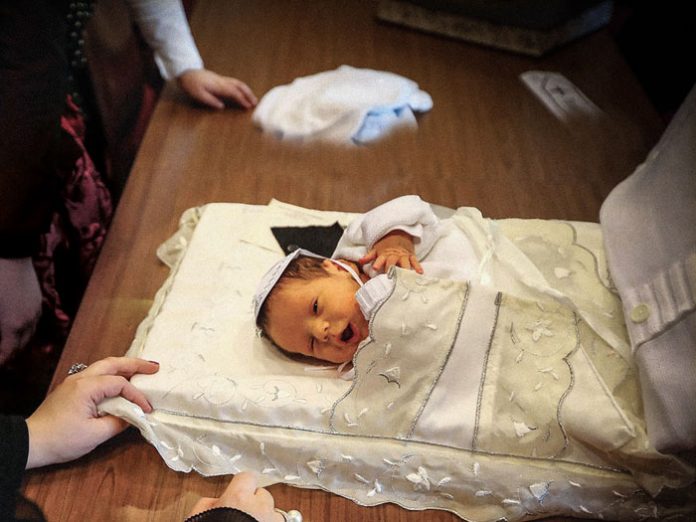2015
Cradling my newborn son in my arms, I struggled with whether or not to attend his bris. The minhag of my family is that the mother stays home, but I also felt that I wanted to be there for him. It was heart-wrenching to think of him being in pain without being able to offer him comfort. I voiced my thoughts to my family, but I was told that they would bring him straight home after the bris and that it was “just better this way.”
I strapped my son into his infant seat and relinquished him into the care of my mother, who would take him to the bris. I handed her the bag I’d prepared with of all the things she might need and made her promise to bring him back right away. She smiled and told me not to worry so much. I sat down to say some Tehillim but couldn’t help looking at my watch.
After around ten minutes I got a phone call letting me know that the bris had been performed. I asked when my baby would be brought back and was told that the mohel was still finishing up. After a half-hour had passed, I started getting nervous, considering that the shul was only a five-minute walk from the house. I was told that the mohel was still trying to get the bleeding under control but not to worry. Of course I did worry, waiting anxiously for the next update.
Fifteen minutes later the front door was suddenly flung open and the mohel walked in with my son. I wanted to stay in the room where the mohel was taking care of him, but the mohel insisted that I leave the room while he made one last attempt to stop the bleeding. I was crying in the next room, and my son was screaming at the top of his lungs. Although his screaming was reassuring since it meant that he still had the energy to cry, it was very distressing to listen to.
Five minutes later I was informed that everything was okay and that I could come back. The mohel explained that although there had been more bleeding than usual, he had been able to cauterize the wound, and he gave us instructions for the baby’s care. When I asked if there was a reason the baby had bled so much, he replied that it just happened sometimes, adding that I was lucky that he carried supplies for cauterization with him in case of need. Still, I couldn’t help feeling that the mohel had done something wrong and was trying to protect himself.
I walked into the midwife’s office looking forward to seeing my unborn baby boy on the sonogram screen. In the back of my mind I had an odd concern, but I pushed it away, knowing I tended to worry about everything.
The ultrasound technician started moving the probe around but couldn’t seem to get a good angle. She gave me a drink and told me to take a walk and come back. We tried again, but she was still unable to get a good view.
“Hold on, let me check something,” she said, making one more attempt. “I don’t think the baby can move. He doesn’t have any room. Hang on.” She printed out a few pictures and told me to go sit in the waiting room.
I heard her talking to the midwife in a hushed voice. The midwife looked at the images and got on the phone with a doctor. After a discussion that lasted almost 45 minute, she called me into her office and proceeded to explain that based on the ultrasound, it seemed I had oligohydramnios, which meant that my baby had little to no amniotic fluid to float around in. She gave me a referral to a high-risk obstetrician and told me that I should start overhydrating, drinking pretty much every minute of the day.





















